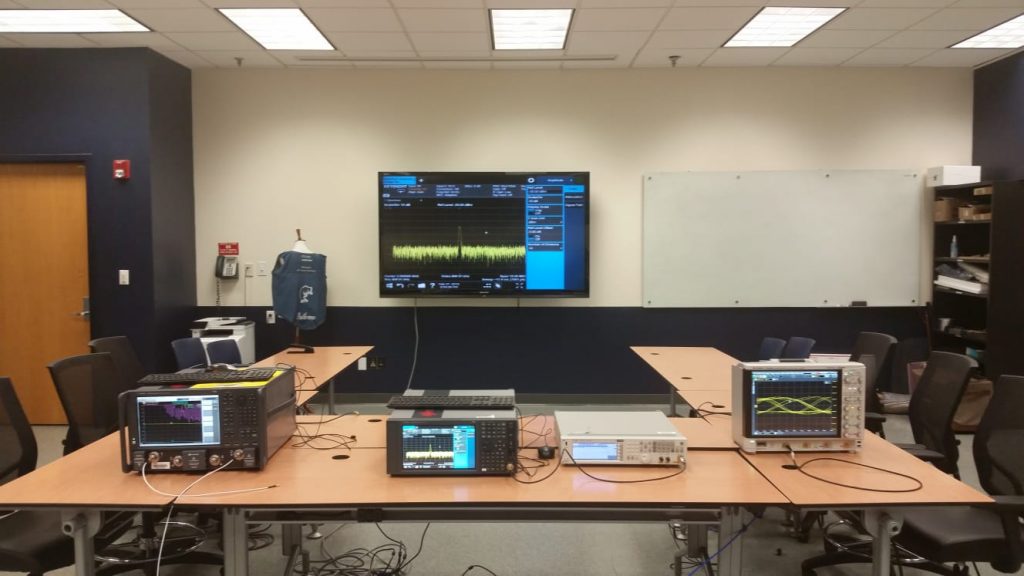Teaching
Lecturer, Sp 2022
Principles of Modern Radar (EEE 5547)
Florida International University
Lecturer, Sp 2019
RF Instrumentation (EEL 6931)
Florida International University
Lecturer, Sp 2018
Concepts in ECE (EEL 5009)
Florida International University
Teaching Assistant, Sp 2017
Antennas (ECE 5011)
The Ohio State University
EEL 6931 - RF Instrumentation


Course Description and Purpose
This course will be focusing on proper usage of RF equipment required for testing and evaluation of RF and microwave component/system. Students will be introduced to techniques and procedure that has to be followed in order to perform error free measurements. Students will be made to work in groups. Each group will be working independently.
Evaluation will be based on involvement, participation, quizzes and final term project.
Course Objectives
Upon completing this course, students will be able to:
Identify and use different RF test equipment for characterizing RF wireless components and system
Develop skill set required to set up test bench
Independently evaluate AUT/DUT or system using available resources
Understand and identify common mistakes existing in typical test bench set ups
Learn and implement un-conventional measurement techniques for antenna and system measurement
EEL 5547 - FUNDAMENTALS OF MODERN RADAR
Course Description and Purpose
In EEL 5547, the fundamentals of modern radar systems are examined, introducing the main concepts and techniques used in modern radar implementations. The class is a survey course, with the goal of exposing students to a wide range of radar concepts, applications and design issues.
Evaluation will be based on involvement, participation, quizzes and final term project.
Course Objectives
Radar systems have evolved tremendously since their early days when their functions were limited to target detection and target range determination. Modern radars, are sophisticated transducer/computer systems that not only detect targets and determine range but also track, identify, image, and classify targets while suppressing strong unwanted interference. The goal of this course is to provide a comprehensive introduction to the functions of a modern radar system, the elements that comprise it, and the principles of their operation and analysis.
Hence, students in this class will not only gain a fundamental understanding of these RADAR concepts, but also complete a project that demonstrates the generation of multiple RADAR waveforms required for its realization. The course will give students the opportunity to learn and apply the knowledge and skills they will need as working professionals in this field. Some specific goals include students:
Knowing the major functions and applications of a modern radar systems.
Learning to solve the radar range equation
Understanding the radar environment and its effect on radar performance
Understanding the major components of a modern radar system
Determining target probability of detection and probability of false alarm
Learning basic radar signal processing techniques
Guest Lectures
In this course, one/two guest lectures will be presented by application engineers working in the relevant field, emphasizing the role and application of RADARs in day today activity. This will provide students first-hand information of how RADARs are revolutionizing automotive industry. In addition, this could also open up prospective career opportunities for highly motivated and skilled students.
EEL 5009 - Concepts in Electrical and Computer Engineering
Module 1
1.Basics of digital signal processing
2.Control systems
3.Digital system Communication and Integration
Module 2
1.Introduction to analog Electronics
2.Transistors
3.Op Amps and Op Amps in instrumentations
Module 3 – Laboratory
1.System level implementation using Ardunio/FPGA
2.Project based